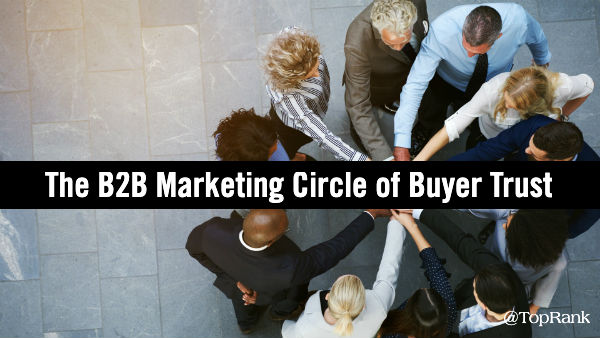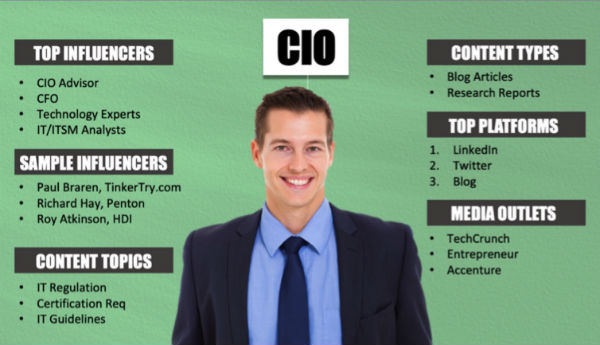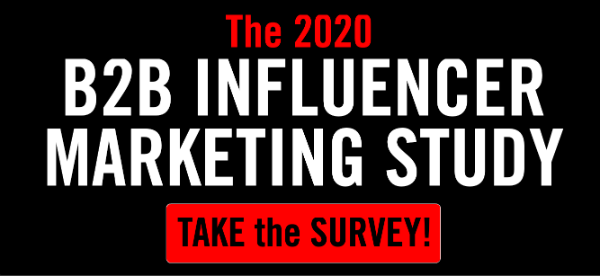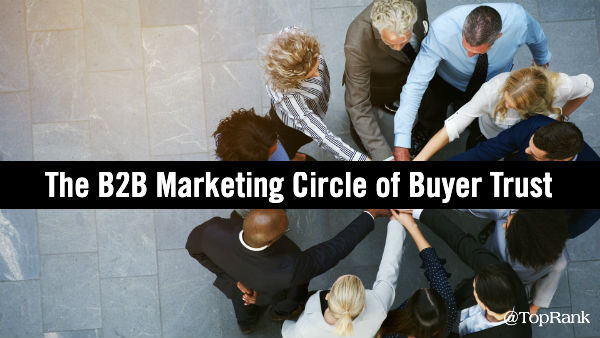
Buyer distrust of advertising and brand communications is one of the top challenges of our time for marketers.
As TopRank Marketing’s Nick Nelson has shared, “trust is currency” and that trust is “arguably the most valuable currency in today’s B2B marketing environment.”
Studies continue to show that business peers and experts have customer attention over brands. 95% of B2B buyers say they prefer credible content from industry influencers according to a study from Demand Gen Report.
As a result, it is more important now than ever for marketers to find ways to become part of this new “circle of trust” for buyers.
But how?
Like few other marketing tactics, Influencer Marketing provides an effective way for companies to partner with credible experts that have the attention and trust of customers. B2B brand and influencer content collaborations can deliver significant marketing performance improvements across the entire customer lifecycle from awareness to purchase to advocacy.

The role of influence and creating trust goes beyond working with experts. B2B brands that truly understand the influences of their buyers can use those insights to create best answer content and expert activations in the channels their customers rely on to discover, consume and engage content that supports decision making.
Discovering sources of influence can come from first party data, primary research with customers and CRM data among other sources. Answering questions about what people, publications and passions are influential for a buyer can directly inform content planning that can boost relevance, credibility and brand trust.
On top of all that, being the best answer with credible content optimized for trust is a better customer experience.
While there are many possibilities with influencer marketing, it’s still new for many B2B brands. Over the past 5 years, an increasing number of B2B companies have implemented pilot influencer programs and campaigns, giving them exposure to the possibilities and operational realities of influencer marketing.
Influencer marketing is a relationship business and while pilots and experiments are good to build a use case, start/stop campaigns do not allow for the full maturation of what’s possible when brand and influencer relationships are strong. Ongoing influencer engagement and always on influencer marketing programs iteratively improve performance and build momentum that results in better returns to the brand, influencers and customers. Always on influencer engagement is truly an “everybody wins” situation.
The Good and the Bad of Influencer Marketing
Good influencer marketing – Adobe is doing a great job at fostering a community of trust with their Insiders group. Not only did Rani Mani and team assemble an impressive group of industry influencers and creators for activation at the Adobe Summit conference, they created an environment where those influencers continue to actively engage on a daily basis MONTHS after the event. As a result, Adobe has not only built continued trust in its brand amongst a community of influencers but with the Adobe customers those influencers reach as well.
Bad influencer marketing – A company I will not name reached out to a laundry list of influencers mechanically asking them to answer multiple questions on a Google Form for some kind of content asset. After the form was completed, there was no thank you, no follow up communication or notification of when the content asset published.
This approach to engaging influencers is simply crowdsourcing content and really only creates operational value for the brand and not a lot of value for the influencers (who are unlikely to share) or end consumers who probably won’t see it. Most of all, a transactional approach to activating influences does not build trust – for anyone.
Examples of B2B influencer marketing that builds trust
3M – In their effort to educate the public on the value of science in our everyday lives and build trust and credibility, 3M’s Chief Science Advocate interviews influencers from the scientific community through the Science Champions Podcast.
By connecting with experts on topics from the human impact of science to science and innovation, 3M is building brand trust amongst their customers and the public.
Dell – Dell Technologies has developed relationships with a network of influencers including Mark Schaefer and Doug Karr, who host the Dell Luminaries podcast. Their discussions with technology visionaries from inside Dell and out, put a human face on technology innovation and build trust in the Dell Technologies brand.
Where many B2B brands fail to build trust with influencers is how they approach the value exchange.
Trust is important for the brand and customer relationship as well as for the brand and influencer relationship. No influencer wants to “feel used” by a brand. No brand wants to feel underwhelmed by working with an influencer. One of my favorite sayings about this topic is,
Engage an influencer for a campaign and they are your friend for the day. Help someone become more influential and they’re your friend for life.
Brands that engage influencers need to take a step back from thinking only about what they want from the influencer and find out what the influencer wants. When companies can align and find a way to provide the influencer with what they want, whether it’s exposure, access to content, software or people, while also delivering on what the brand wants, it’s a win for everyone.
Look beyond individual campaigns and think about how the brand and influencer relationship can create mutual value, influence and trust over time. That trust built amongst an influencer community will translate to trust built amongst customers.
Where should B2B brands start with influencer marketing? We’ve covered this quite a bit in the past, but I can’t recommend enough the value of connecting with a resource that has deep experience in the area of influencer marketing. Make a commitment to understand what is possible and develop an informed plan to test, evaluate and scale.

There are many unanswered questions about influencer marketing in the B2B space. We’ve answered our share across many posts here at TopRank’s Online Marketing Blog over the past 6 years, but we’re taking our quest for finding and sharing answers a step further: The 2020 State of B2B Influencer Marketing Survey.
We are currently collecting survey responses from B2B marketers who have considered, tested, implemented or are fully committed to influencer marketing. This is the first influencer marketing research effort focused specifically on B2B influencer marketing.
Please take the survey here and on top of adding valuable insights about strategies, tactics, best practices and trends that will elevate the industry, you can enter for a chance to win a $500 Amazon Gift Card!



